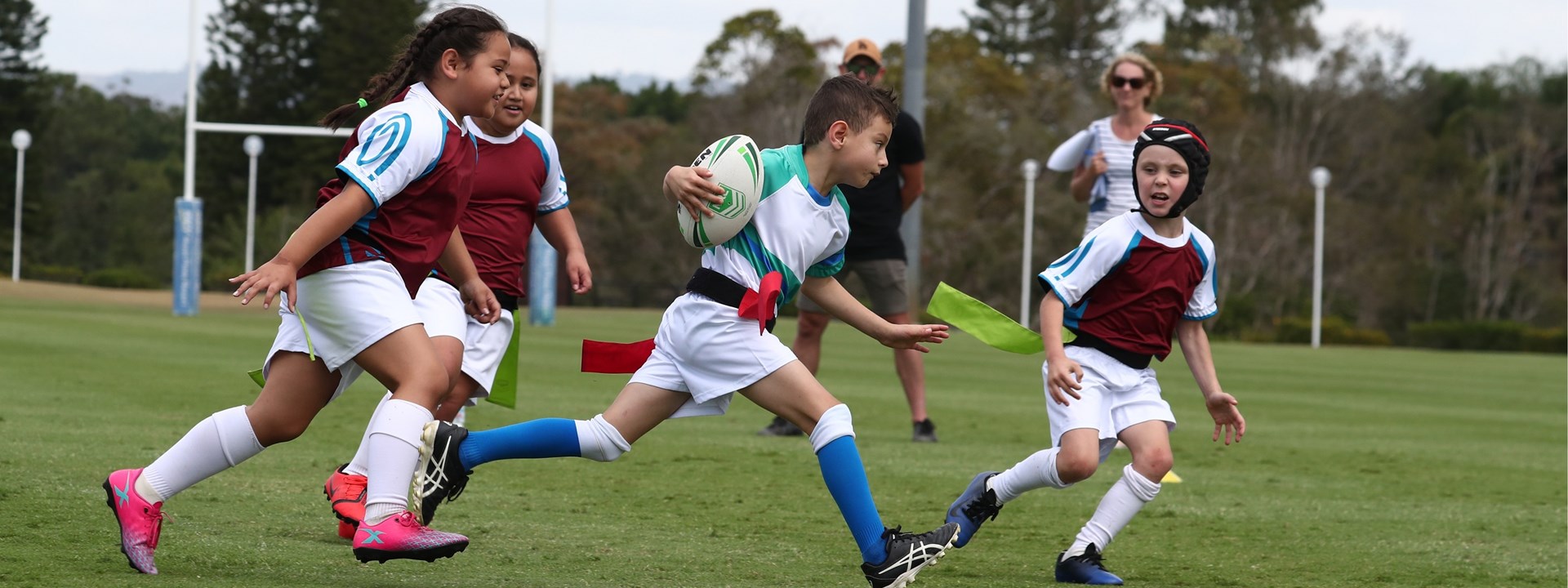
Rugby League Tag
Player Development Framework
Rugby League Tag Parent Feedback
During the piloting and testing of the Rugby League Tag format over 1800 children participated in Rugby League Tag competitions. All participant families were provided the opportunity to comment on their experience with 330 surveys completed, representing a 18% return rate.
73%
Reported that Rugby League Tag had improved their child’s confidence in Rugby League.
78%
Reported that their child’s enjoyment of Rugby League Tag met expectations (23%), occasionally exceeded expectations (17%) or exceeded expectations (38%).
56%
Reported that Rugby League Tag had provided increased involvement opportunities in games for their child.
Supporting Research
When exploring the idea of introducing an entry-level format for children to better ready themselves for the game of Rugby League, the NRLs Retention Survey (Usher, 2017) which highlighted ‘injury/fear of injury’ as a key driver for participants not to register in the following season, was evidence that addressing the physical and technical elements associated with tackling and being tackled needed to be considered.
Rugby League Tag allows every new participant the opportunity to better learn the basic game concepts and skills such as catching, passing, running and evasion.
Starting too early from the standpoint of skill acquisition can lead to a slower rate of learning, which can lead to frustration and the development of bad habits, which can take considerably longer to overcome later in the developmental stage (Anderson & Mayo, 2017).
Jean Piaget’s theory of cognitive development suggests that children move through four different stages of mental development. His theory focuses not only on understanding how children acquire knowledge, but also on understanding the nature of intelligence. The stage of development most relative to this concept is the preoperative stage:
Preoperative stage – ages 2 to 7:
Piaget noted that children in this stage do not yet understand concrete logic, cannot mentally manipulate information, and are unable to take the point of view of other people, which he termed ‘egocentrism’. They are also developing the ability to concentrate on more than one thing at a time.
In a Rugby League context, this information is critical, as it helps us to understand the way in which young participants process new information. It is clear from Piaget’s findings that prior to the age of 7, children are generally unable to process complex tasks due to their incapacity to think logically. Therefore, teaching safe and correct tackle technique to children under the age of 7 may not be the optimal learning window for these younger age groups.
Return to Framework
Find out more about the Player Development Framework (PDF).
